Queens occasionally reject kittens who appear to be ill or spend less time caring for weaker ones when they have particularly large litters and not enough milk to provide adequate nourishment for all their babies. Mother cats sometimes stop giving their kittens attention but can also actively attack them, for a variety of reasons.
Once kittens get older, the reasons mother cats may go on the attack vary from teaching boundaries to weaning. Contact your veterinarian for advice if you become concerned about your cat’s behavior or the kittens’ welfare. Keep reading to learn more about four possible reasons mother cats attack older kittens.

The 4 Reasons a Mother Cat May Attack Their Older Kittens
1. Weaning
When cats are born, they’re dependent on their mothers for nutrition. As kittens age, their mothers encourage them to eat regular food by pushing them away when they want to cuddle up and nurse.
The process can continue until cats are entirely weaned, and most kittens need about 6-8 weeks before they’re fully weaned. If your cat appears to be reacting assertively, specifically when her older kittens approach to nurse, there’s likely nothing to be worried about as it’s probably just part of the natural weaning process.
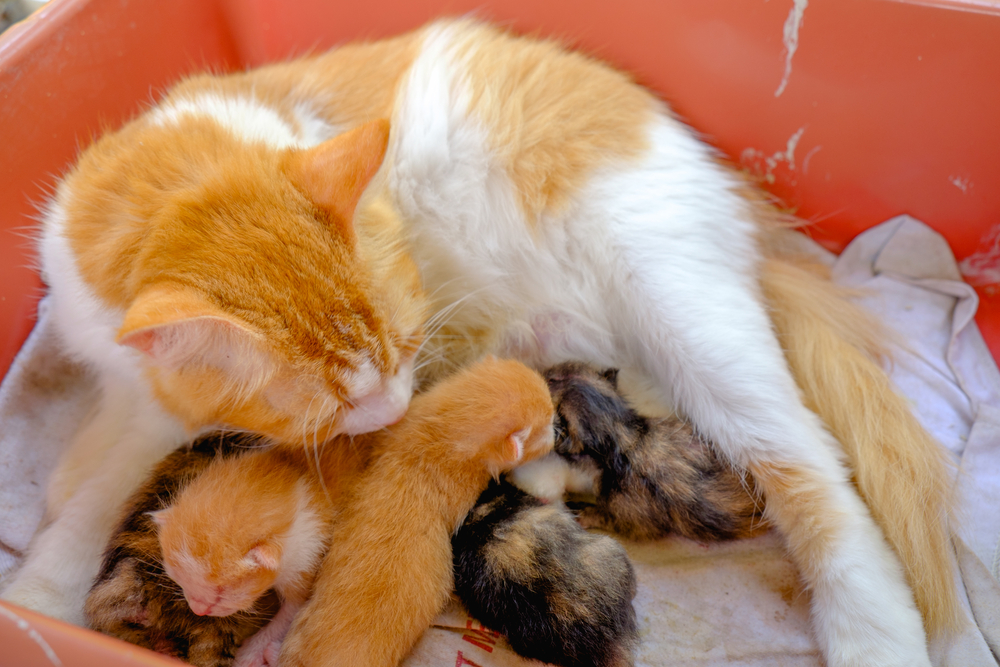
2. Teaching Boundaries
Cats sometimes react aggressively when things become too heated during playtime. Mother cats are primarily responsible for teaching their babies how to interact with and get along with other cats and navigate the world. Cats often growl, bite, and use aggression to tell their feline friends it’s time to back off.
If your cat is biting or hitting her kittens when they get carried away while playing, she’s likely teaching them their boundaries. The mother and her kittens usually calm down after she disciplines them.
3. Redirected Aggression
Scared cats sometimes attack people and animals that have nothing to do with what’s upsetting them. For instance, a cat who is upset with the family dog may attack the nearest bystander instead of the dog; it’s called redirected aggression and can also be triggered by things your cat sees happening outside.
If your cat reacts aggressively toward her kittens after a showdown with another pet, it may be redirected aggression. Allowing cats the time and space to calm down is critical when it comes to controlling this sort of behavior.
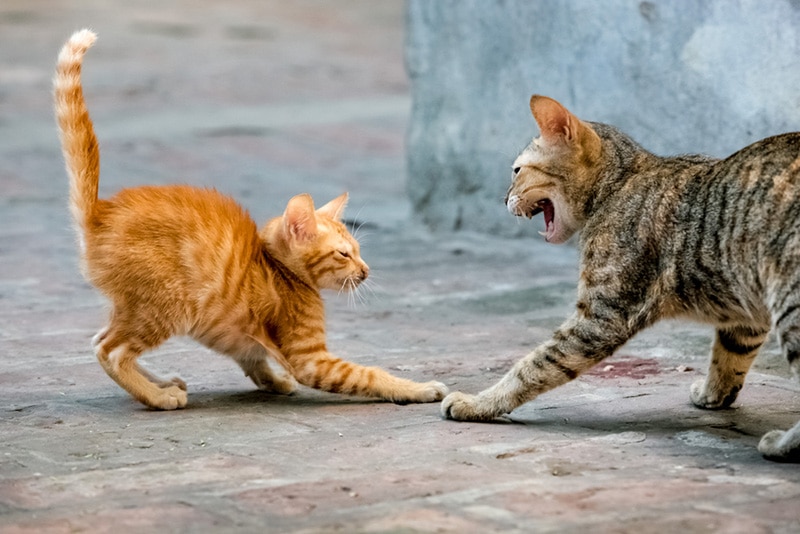
4. Pain
Cats often hide signs they’re not feeling well; it’s an adaptation that helped them survive in the wild. It’s notoriously difficult to identify signs of illness in cats, as they’re often subtle and marked by minor changes. Cats that aren’t feeling well often withdraw and lose interest in interacting with people they usually want to spend every minute with, and they can even lash out when feeling particularly under the weather.
Some bite and become aggressive when painful parts of their bodies are touched. If your cat generally appears to be lethargic or you’ve observed other behavioral changes, make an appointment with your vet to ensure nothing else is going on that could be causing the behavior.
If you need to speak with a vet but can't get to one, head over to PangoVet. It's an online service where you can talk to a vet online and get the advice you need for your pet — all at an affordable price!

Conclusion
Mother cats can become aggressive toward older kittens for several reasons, including setting limits and weaning. Pain can also motivate this sort of behavior. Mother cats can go on the offensive when kittens’ play becomes a bit too enthusiastic.
Getting rid of stressors and ensuring cats have comfortable environments that meet their needs can often go a long way toward reducing overly assertive behavior in pets. Keep in mind that punishing cats for aggressive conduct makes the situation worse. Cats showing signs of illness, such as lethargy, lack of appetite, or withdrawal, should always be seen by a veterinarian so that they can be diagnosed and treated.
Related Read:
- Why Is My Cat Making a Vibrating Noise? Vet-Approved Explanation
- Cat Litter Safety: A Vet-Approved Guide
Featured Image Credit: Volodymyr Plysiuk, Shutterstock

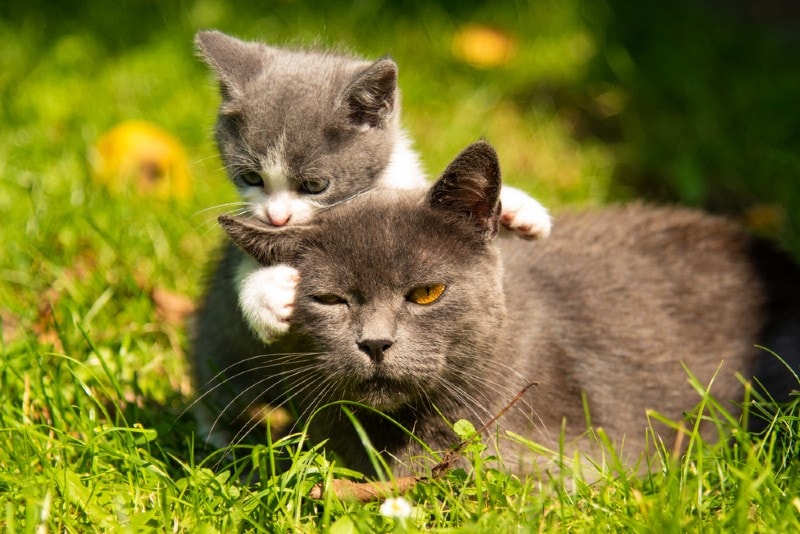


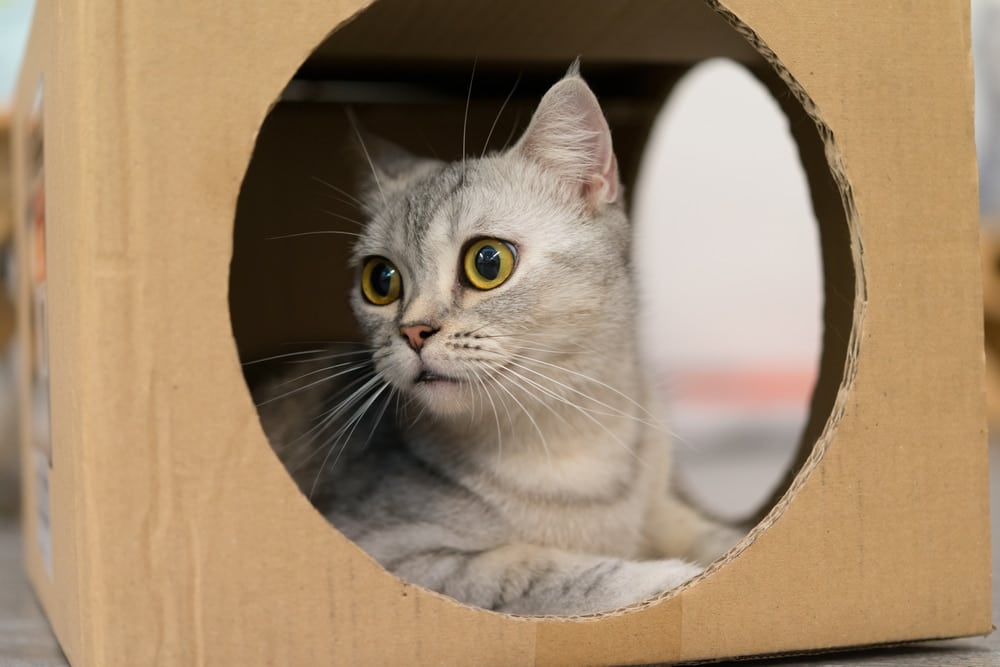




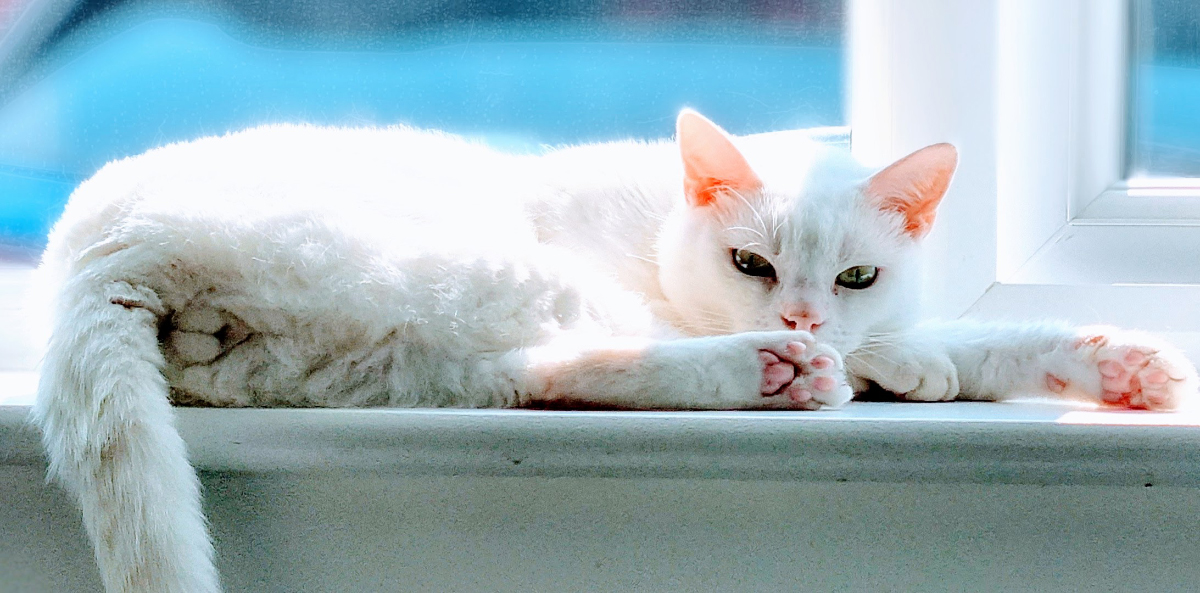
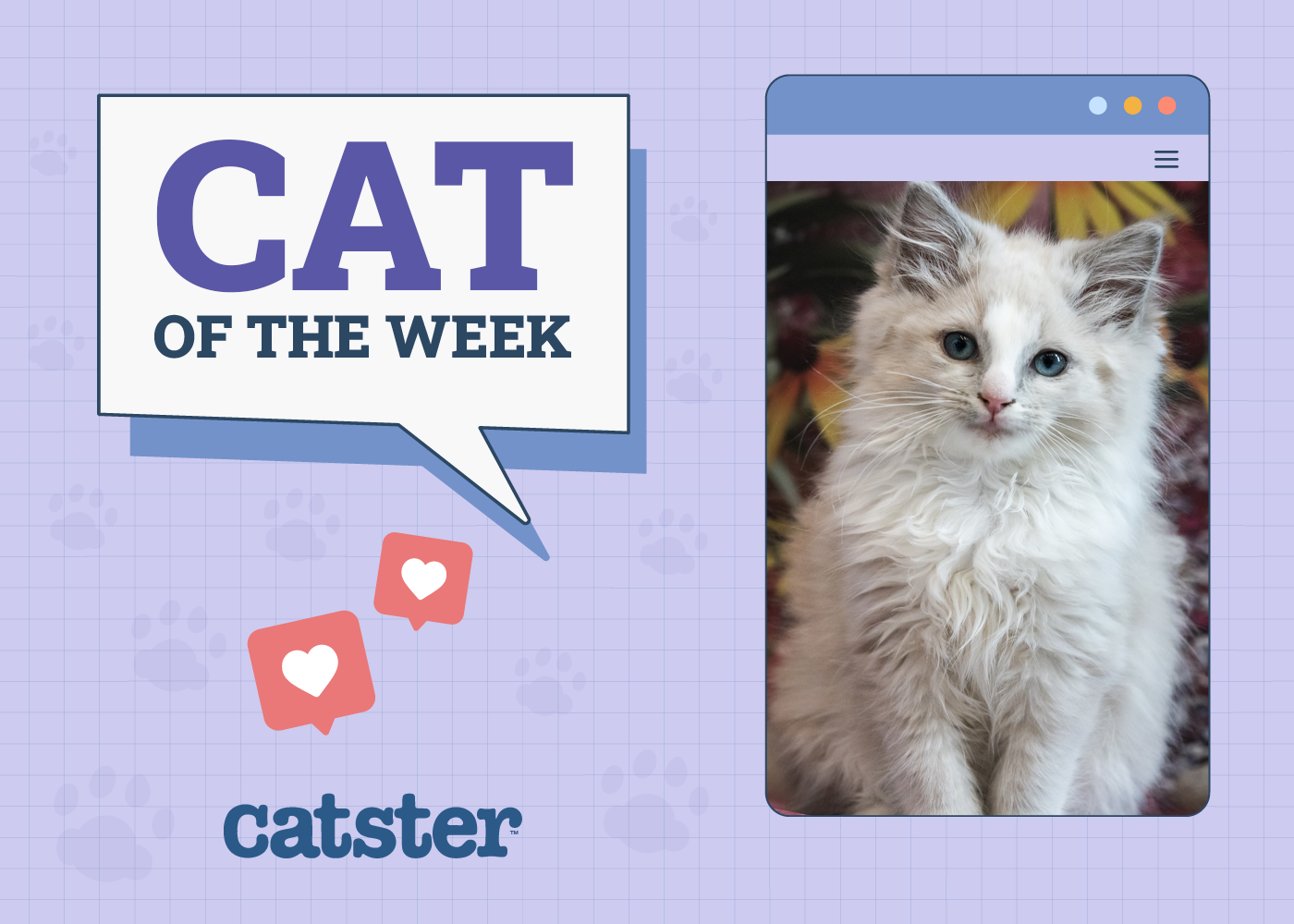

I have a first time mother and still have two kittens about 4 months old. one kittens got out and was under mobile home all day. we finally got her in only for mother cat to seem not to recognize or want this kitten around. Mom is growling, hissing, attacking the baby. I don't know if mom's smelling something. I'm going to bathe the baby,but don't know what to do as I have a handicap person in home and it's becoming a dangerous situation. Any help you can provide would be appreciated. Thank you.
Hi Sandra, at 4 months old kittens need to be eating solid kitten food and be independent from their mother. Mothers will naturally create distance if kittens insist. It is the law of nature, and of course, not an easy but necessary step for kittens to carry on with their lives. The best way you could help is by getting the kittens neutered and to avoid more kitten litters soonish. Kittens can reproduce at a very young age. You might be interested in reading: An Owner’s Manual on Spaying or Neutering Your Cat: Why Not to Feel Guilt- https://www.catster.com/felines-weekly/an-owners-manual-on-spaying-or-neutering-your-cat/
Additionally, you might find this information reassuring:
Weaning Kittens: Vet-Reviewed Guide for How & When to Do It – https://www.catster.com/cat-health-care/weaning-kittens-how-and-when/
We hope this helps!